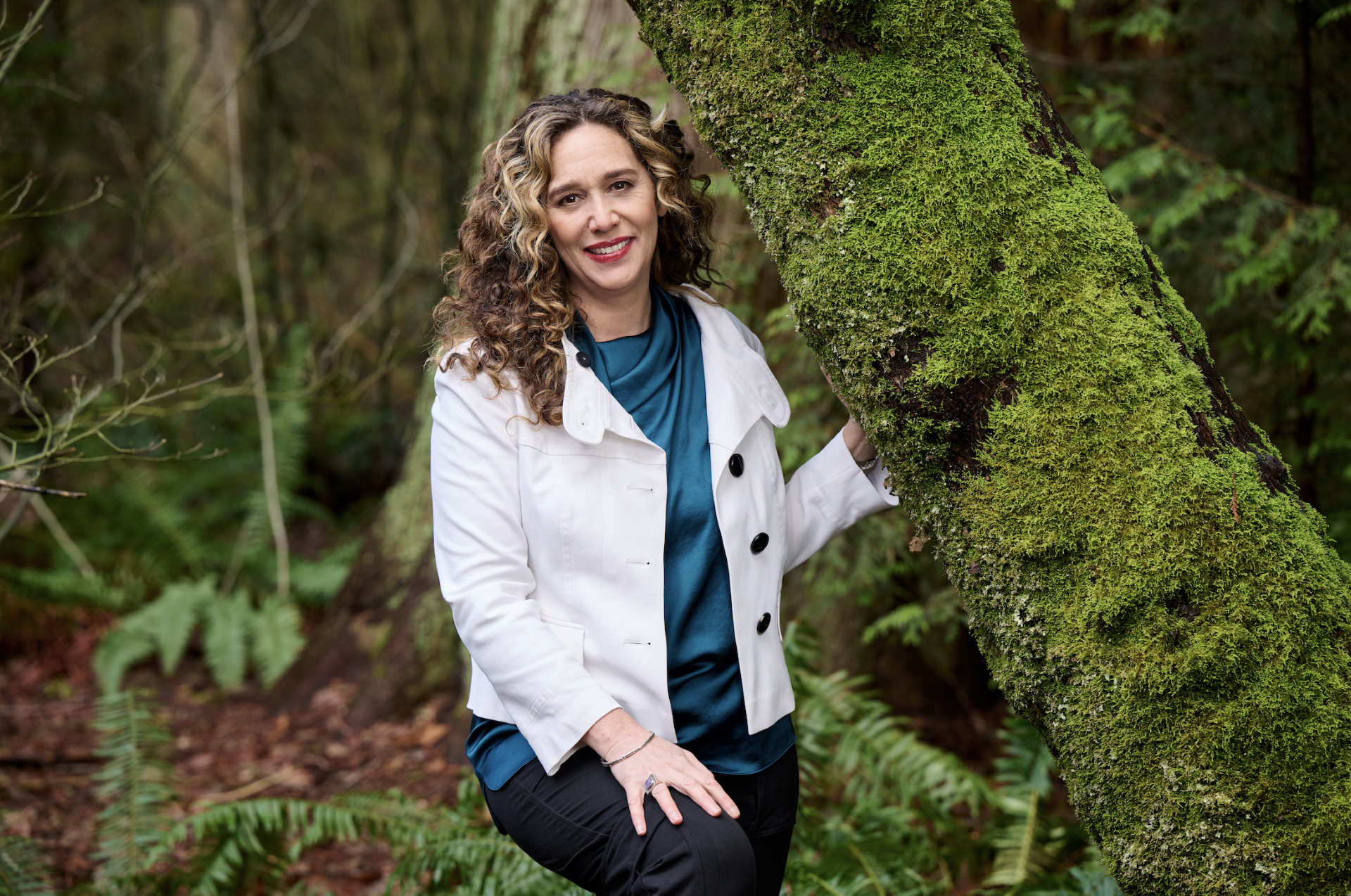Selkirk College Presents Renowned Environmental Activist Tzeporah Berman
From behind the bullhorn at one of Canada’s largest acts of civil disobedience to working diligently behind the scenes with the leaders of the nation’s fossil fuel industry, environmental activist Tzeporah Berman has spent three decades as a crusader for urgent change.
In 1993, Berman was one of the main voices of what became known as British Columbia’s “War in the Woods.” A protest to stop clearcut logging in ancient Vancouver Island temperate rainforests, the Clayoquot Sound camp that Berman helped establish saw more than 10,000 people show up during a tumultuous summer that ultimately helped change how government directs the forest industry.
Currently the international program director for STAND.earth and chair of the Fossil Fuel Non-Proliferation Treaty Initiative, Berman’s determined work on climate change is respected on all sides of the table. A compelling speaker with an incredible career of activism, Berman is touching down in Nelson on May 1 for Selkirk College’s latest Mir Lecture Series event at the Capitol Theatre where she will talk about lessons learned and strategies going forward.
“If we care about these issues, our job is to take a breath and listen,” says the 55-year- old. “We must try to listen to the people and not just hear the positions. But that doesn’t mean we need to weaken our bottom line and it doesn’t mean agreeing to activity that you know in your gut is wrong. We have to be willing to try and find some common ground or shared values in order to be open to solutions that might not be what you first thought they should be.”
Stopping the Destruction of Giants
Berman grew up in London, Ontario and entered post-secondary at Ryerson University with sights set on a career in the fashion industry. After a summer backpacking through Europe in the late-1980s where she witnessed decaying cities and damaged ecosystems caused by overwhelming pollution, Berman switched academic gears to focus on environmental protection as a student at the University of Toronto.
Her first trip to Canada’s west coast came in 1992 to volunteer for Western Canada Wilderness Society in the Carmanah Valley. When Berman returned the next spring to continue her work and write a master’s thesis, the 24-year-old was devastated to witness clearcutting methods in ancient rainforests being carried out by forest industry
behemoth MacMillan Bloedel.
“When I came out that second summer, I started to feel a sense of urgency thinking that the science was going to take too long and the legal strategies will take longer than I imagined,” she recalls. “I thought we were going to lose it all.”
Working with a small group of five other Friends of Clayoquot Sound volunteers, Berman took her first bold steps into environmental activism. Using the relatively sparse communication tools of the time—phonebooks and fax machines—the team began to get the word out with hopes of attracting 100 people to join their camp at the logging
roads that led to old growth forests. With the idea to create a big tent where people from all walks of life would feel welcome to take a stand, thousands showed up over the summer and more than 850 people were arrested.
Though Berman had never gotten involved in any type of protest until that summer, a combination of stellar speaking ability and deep academic understanding of the issues thrust her to the forefront. The young Berman was featured on the front pages of national newspapers and on the nightly news, becoming a leading voice of a generation
determined to make a difference.
“Social change happens at tipping-point moments,” says Berman, who was ultimately arrested and charged with 857 counts of criminal aiding and abetting. “Forestry issues had been boiling for decades in British Columbia. In some ways I was in the right place at the right time, but it also happens because of hard work and organizing. You need a
group of people who are committed to doing the hard work and trying new things every day.”
The toil and persistence by those involved in the Clayoquot Sound peace camp during the summer of 1993 did make a difference. Over the next few years, government began to work actively with conservationists, First Nations and the industry. Harvesting techniques changed and ecologically fragile areas like the Great Bear Rainforest on BC’s
central coast were protected.
“It was an amazing time,” Berman says of her summer at Clayoquot Sound. “Today I am an activist, an advocate and a government advisor 30 years later… the experience of that summer is where I found my voice. It changed me. It changed me forever.”
Working from the Inside Out
Over the last three decades, Berman has forged pathways to tangible change in a variety of areas and with a number of different of organizations. In 2000, she co-founded ForestEthics to take on companies that engaged in practices that damaged the environment. A prominent example of success was shining a spotlight on Victoria’s Secret’s massive distribution of glossy catalogues that used paper from old growth timber. Through street-theatre demonstrations and fake fashion ads, public pressure resulted in the clothing brand changing its business practices.
In the hallways of power, Berman has become a respected advisor to policy makers on issues of the environment. She helped advise the former BC Liberal government under then-Premier Gordon Campbell on North America’s first economy-wide carbon tax that was implemented in 2008. In 2016, Berman was appointed by the premier of Alberta to co-chair the Oil Sands Advisory Working Group that was tasked with creating policy recommendations on how to implement the climate plan and address cumulative impacts of oil sands.
During the Clayoquot Sound summer, Berman was called an “enemy of the state” by provincial politicians. Joining policy makers at the table was not without doubters, with some in the activist community throwing criticism Berman’s way.
“I have tried a lot of things to figure out how to make social change, some of them extremely controversial like getting arrested, blockading and boycott campaigns,” says Berman, who was again arrested for civil disobedience in 2021 when she joined logging protesters at Fairy Creek on Vancouver Island.
“In some ways, the most controversial work that I have ever done is trying to build relationships with people in the logging industry and trying to find solution-pathways. If I hadn’t done that, we wouldn’t have protected the Great Bear Rainforest and we wouldn’t have protected Clayoquot Sound. Campaigning without trying to build solutions with the people who have the knowledge to do it, isn’t anything but complaining.”
The cumulative impacts of industrial extraction have never been more dire and the polarization of Canadian society never more evident. At the Mir Lecture Series event, Berman will tell stories of her career, impart wisdom and talk about a way forward.
“I want people to be inspired by some of the stories of success and change that I have been so lucky to be a part of,” she says. “My hope is that it empowers them to go out and make their own stories. They should leave with a sense of urgency to engage in these issues that are going to shape their lives and some ideas on how to do it.”
Tickets for the Mir Series Lecture on May 1 (7 pm to 9 pm) are now on sale through the Capitol Theatre website (adult $27, senior $20, student/youth $15). You can find out more information at: https://selkirk.ca/events/mir-lecture-tzeporah-berman


























Comments